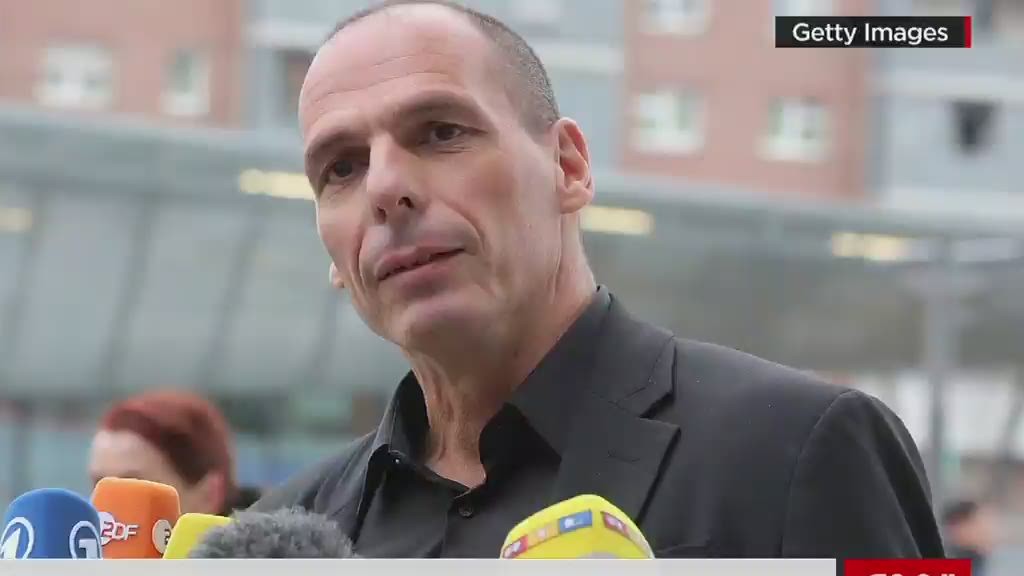
The Greek finance minister sought to reassure the world that his leftist government has its hand firmly on the levers of reform after a speech by Greece's new prime minister rattled financial markets Monday.
"Our government is all about reforming Greece deeply so that we never go back to where we were in 2009, 2010," Yanis Varoufakis told CNN's Christiane Amanpour on Monday from Athens.
"But we can't do that when we are in a debt-deflationary trap."
Prime Minister Alexis Tsipras on Sunday said that he would not extend the European-IMF bailout deal that provides the country with a steady income stream, but also imposes deep austerity measures.
This comes on top of a decision by the European Central Bank last week to stop using Greek bonds as collateral, depriving Greek banks of cheap funding.
Varoufakis described the austerity measures as "trying to extract more milk from a sick cow by whipping it."
"You will kill it. You will not get more milk out of it."
Related: Alan Greenspan: The euro is doomed
Neither Tsipras nor Varoufakis has laid out specifically how their government would bridge the revenue gap.
Though the country has finally has returned to budget surplus and is projected to have positive growth this year, it still has debt valued at 175% of GDP.
"I don't think we have the time to go through the details of what we are going to table on Wednesday, at a meeting of European leaders to discuss the Greek crisis," Varoufakis told Amanpour.
Among Tsipras' other pledges on Sunday were to raise the minimum wage and hire back some government workers who were fired, he says illegally, as a part of austerity measures.
Varoufakis sought to play down the hiring, which economists say would make Greece even more uncompetitive globally, as "just one tiny little miserable percent of those that lost their jobs, the hundreds of thousands that lost their jobs during the last five years."
Related: Greek stocks tank as standoff intensifies
Greek policy is now further from the European consensus than perhaps at any time in its six-year long recession, leading to speculation that the country may have to leave the Eurozone altogether.
Former U.S. Federal Reserve Chairman Alan Greenspan this weekend told the BBC he thinks a so-called "Grexit" was inevitable.
"We are not going to leave," Varoufakis said. "Grexit -- Greece's exit from the Eurozone -- is not anywhere near our thinking process. We consider ourselves to be part of the Eurozone. Whatever criticisms one may have of the Eurozone, once you are in it you should stick with it."
"We should not be playing around with peoples' lives with a prospect of having a gradual fragmentation of the Eurozone. Because the awful centrifugal forces that are going to be unleashed may very well tear the whole of Europe apart."
"And the world economy -- the American economy, the Chinese economy -- the last thing they need is this kind of turbulence coming from Europe at a time when everybody is struggling to recover from the 2008 debacle."

